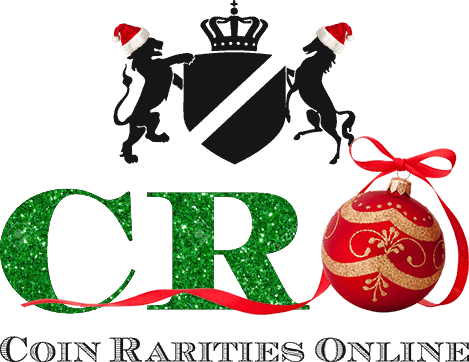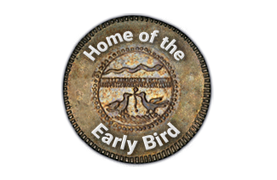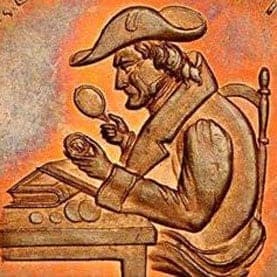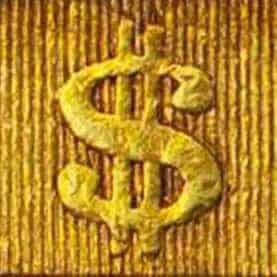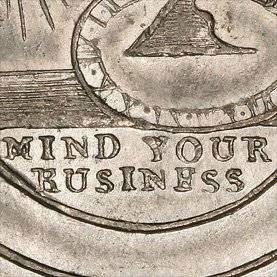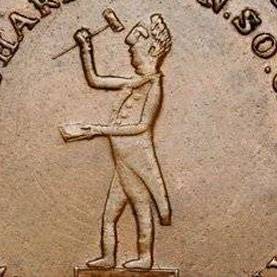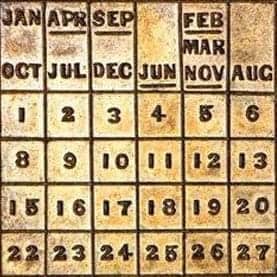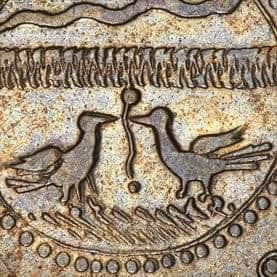July 11, 2009: The Mentor-ist

More Numismatic Non-Fiction By Dave Wnuck
Have you ever heard someone described as a ‘natural’ in numismatics? I have – usually referring to a person who seems to have an intuitive gift for grading, or for coming up with great coins, or for finding ready buyers, etc.
Now, I don’t know if such people actually exist, but I can tell you this: I am certainly not one of them.
Nope. I have been known to make an occasional mistake (gasp!), especially in the early days.
Like the many times I bid on and lost out on really cool collections of $2.5 and $5 Indian gold, primarily because I wasn’t very good at grading these challenging coins.
OK, so I didn’t have the innate ability to grade every series like a pro. What I did have was a strong interest in all aspects of numismatics, and a burning desire to learn. But I was trying to learn by doing; by jumping into the fray, and that doesn’t always work out so well.
What helped me accelerate the learning process (and gave me a pretty good shot at success in this business) was having a mentor. Someone who had been there and done that, and could show me the ropes in a less painful and costly way than me trying to figure it all out on my own.
My numismatic mentor was a wholesale dealer in New England.
He cut his teeth in the 1970’s and early 1980’s, before the advent of third party grading. As a strictly wholesale dealer, he made his living – a pretty darn good living — by buying from one dealer and selling to another, with no retail clientele. Which meant that he had to know coins inside and out, build good working relationships with people who were ostensibly his direct competitors, somehow find enough nice pieces and know how to grade them when he did.
And he was very good at that, which is why, in the early days of one of the two major grading services, he was offered a job as a full time grader. But he declined it, preferring to do his own thing.
I’m glad he did, because that meant I was able to spend a lot of time with him and learn (among other things) the two keys to being a successful coin dealer:
The Magic Secret to Grading and Evaluating Coins
Which is (a drum roll please): Look at thousands upon thousands of them. Maybe more.
And that’s what I did. Poring through all of the coins he acquired as I helped him sort and catalog them. Coins in deals. Coins from family estates. Coins housed for years in leather pouches. Coins in 2x2s. Coin which had been in Wayte Raymond albums in a dusty safety deposit box since 1950. Proof sets and mint sets in their original packaging. Copper coins of every era. And, of course, lots of sets of AU and Unc. $2.5 and $5 Indians.
And I studied what they looked like. And compared them. And studied them again. And I asked him 8,000 questions. And looked at them under a glass. And he’d say does this look cleaned to you? And I’d say no. And he’d show me that it actually was.
And he’d have me compare original copper coins to a few he kept that were burnished or expertly recolored. And he’d show me coins that were tooled or otherwise fiddled with that I doubt I would have seen myself.
And, after a long, long time of doing that, and having an expert help me, I learned what originality really looks like, and I learned how to grade (including even those challenging $2.5 and $5 Indians).
I also learned that knowing a lot about coins was only part of the equation, you still had to find nice pieces, and then sell them when you did . . .
The Art of the Deal
Back then, a lot of people in this business operated by the philosophy that they should buy every coin for as little as possible and then sell it for as much as possible (come to think of it, a lot of people still believe that).
But that wasn’t how my mentor worked. He tried very hard to make every single transaction a win-win for both parties. He really did.
There were plenty of times that he could have sold a coin for more than he did, but he always wanted to price his coins so that the buyer could in turn offer them at a fair price and make a reasonable profit too.
In doing so, he knew that his dealer customers would always be anxious to see him, check out his new inventory and would want to buy coins from him.
And when someone showed him a coin he wanted to buy he always made generous offers, because he wanted his customers to think of him first whenever they had good coins for sale.
As he always said, his goal was not to make a lot of money on one transaction and then never see the customer again. His goal was to develop long term business relationships which could continue for years. Decades maybe.
And you know what happened? People liked dealing with a guy like that. And they liked recommending him to others. And he built a very successful business.
Now, it would be easy to say that I’d have done it that way on my own, but there is nothing quite as compelling as seeing someone else actually doing it, and proving that you can run a successful coin business while treating people as you yourself would want to be treated (in an environment where lots of people don’t do it that way).
Which is why I feel so lucky to have found someone who was willing to share his knowledge and help a young guy get started.
So, How Does One Find a Numismatic Mentor?
In the old days, the answer might have been at a local coin club (as it was in my case), or at the corner coin shop.
Today the answer is more likely to be in a numismatic chatroom (such as the PCGS & NGC forums, Coinlink.com, EAC’s Region 8, Yahoo’s Colonial Coins group, to name just a few), or in one of the specialist clubs, like C4, EAC or the John Reich Collector’s Society.
Wherever you find them, there is no substitute for having an experienced collector or dealer show you the ropes.
Trust me, I know.
